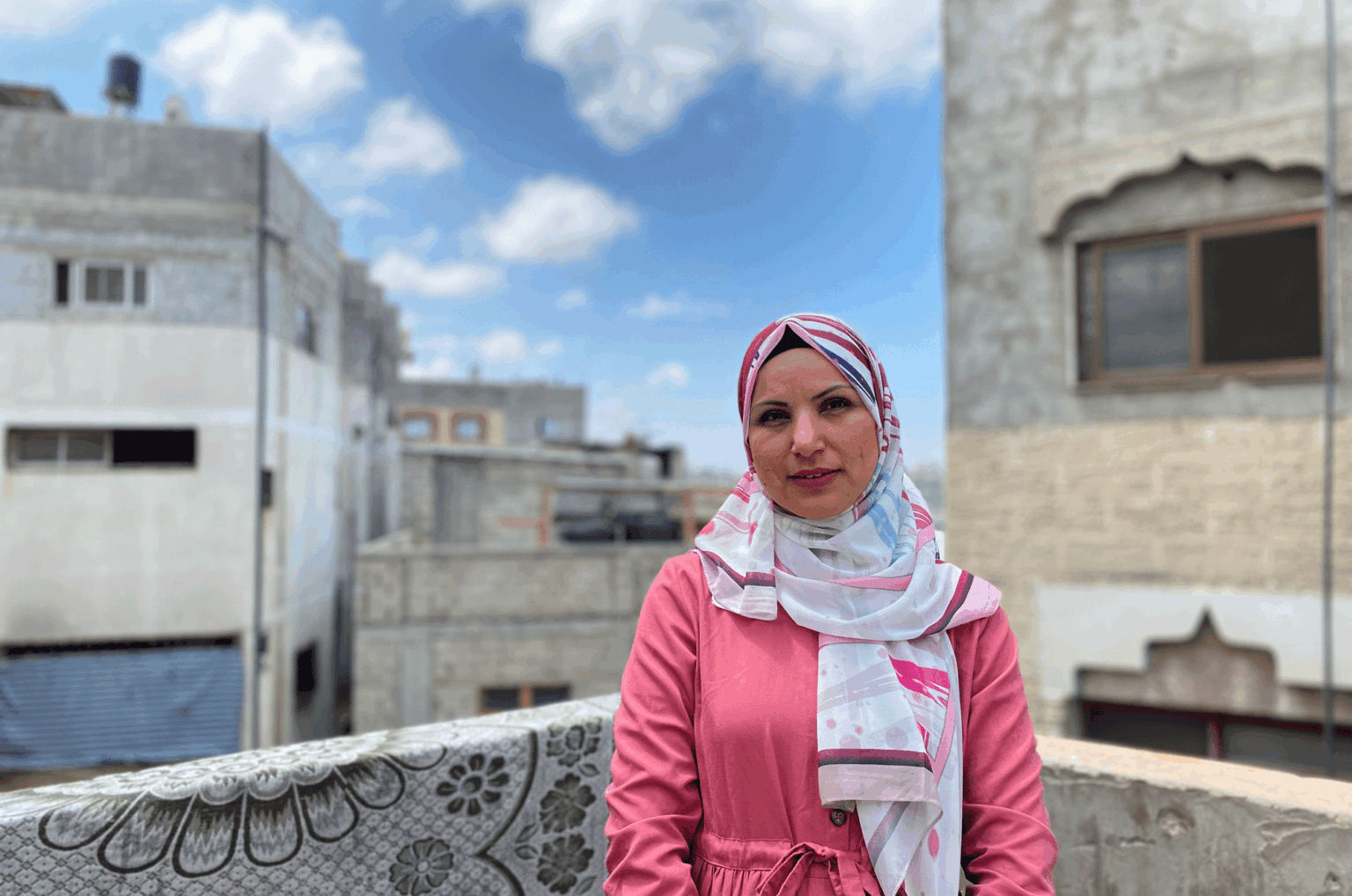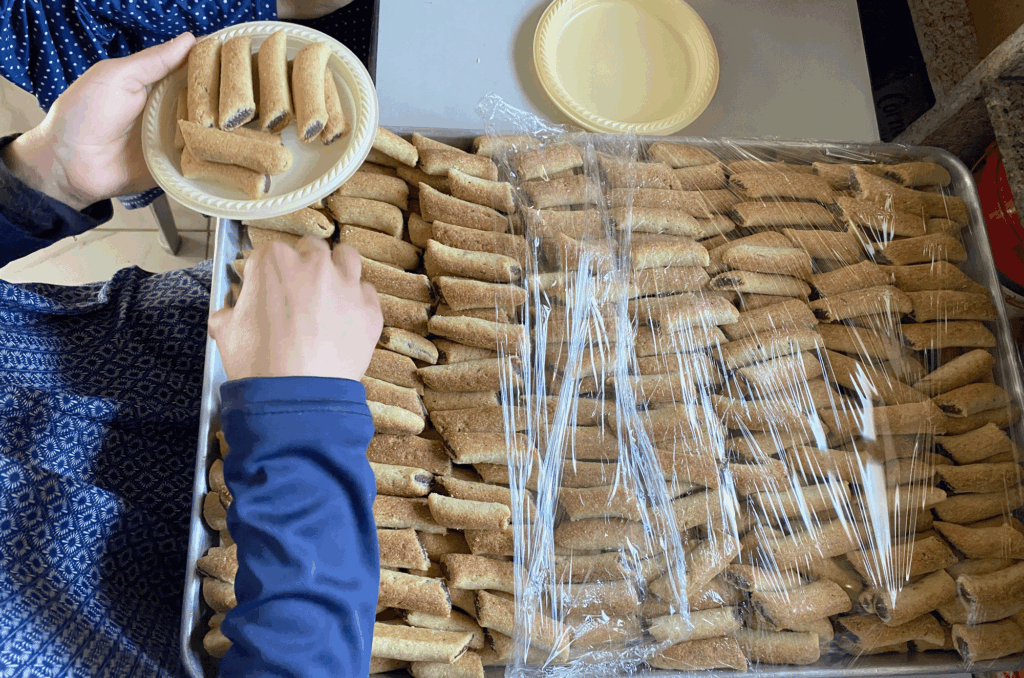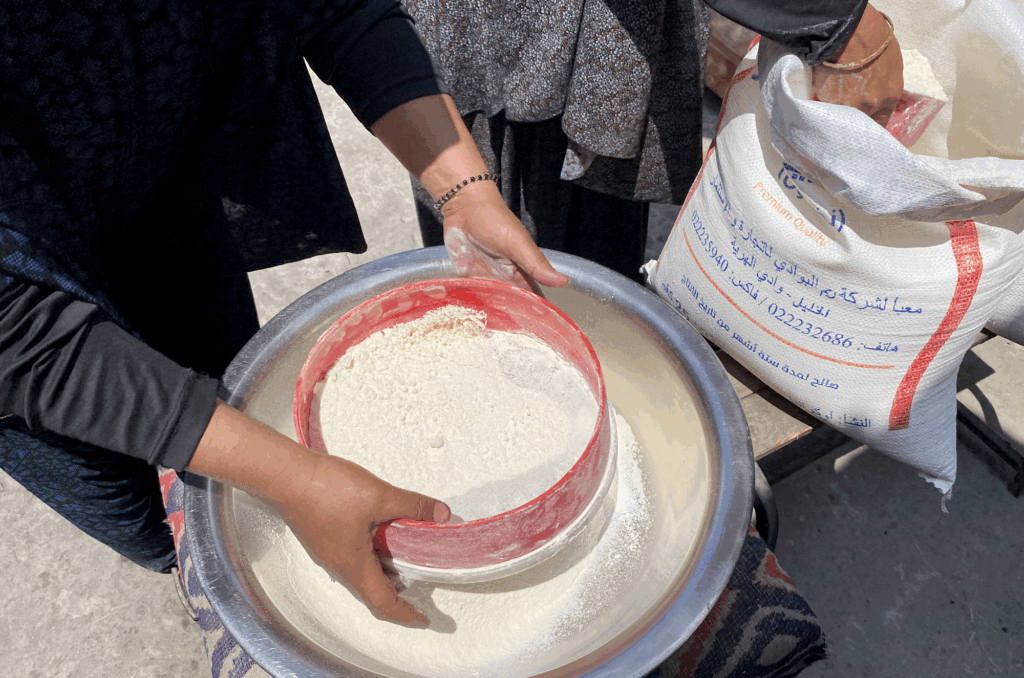May, 2025
By Rana Rayan, Gaza small business owner
In Gaza, hunger is everywhere. It’s not just a feeling in your stomach — it’s a shadow that stretches over everything. But even with bombs falling and supplies running out, another kind of fire burns inside us: the will to keep going. As women, we’ve had to become strong as rocks, using our kitchens as places to find food and hope.
I never imagined I’d be feeding hundreds of people in the middle of a war. I studied psychology, not business or culinary arts. Cooking was something I loved, but it was just personal. At the beginning, it was just me with a hot plate and a dream. I’d post pictures of my food on social media and hope someone would order. I didn’t have proper tools and couldn’t take on big orders. Honestly, I didn’t even know how to run a business. Some days I made a small profit, others nothing at all.
Then one day, some people from Anera tasted my food. They were kind. They said it was delicious and that I should apply to their Women Can program, which helps women start small businesses. I figured, why not? When they came to see my tiny rooftop kitchen, I didn’t think much would come of it. But then I got the call: I was accepted. That moment changed everything.
Through Women Can, Anera didn’t just give me equipment — they gave me useful knowledge. Real training. I finally understood how to manage costs, plan ahead, and think like a business owner. I learned what a profit margin was, why saving for equipment replacement mattered, and how to plan beyond just surviving the day.
With that knowledge and support, my little kitchen began to grow. What started as just me and my mother is now a team of 12 incredible women. We cook together, clean together, and lift each other up every single day.
Then the war started. And with it came famine.
We had no food or water. Everything we’d built came to a halt. I used the little savings we had just to survive. I didn’t think we’d ever cook again. But Anera reached out and asked us to start again — to help feed people, to stand with our community. It felt impossible. Ingredients were scarce, prices were insane. A kilo of dates cost 100 shekels ($27)!
But Anera didn’t give up. They brought us firewood when there was no gas and supplies when we couldn’t move. They picked up our cooked meals and delivered them to people in need. They made it possible to work, even in the chaos.
Cooking over firewood isn’t easy. It’s messy, it’s hot, it’s exhausting. But we kept going, because the meals we made were going to families in shelters, children in tented schools, patients in hospitals. It was clear that what we were doing was much more than feeding people. We were giving them comfort, maybe even a little joy.
For many of the women working with me, this is their first job. Some are students trying to pay tuition. Others are mothers with no other source of income. One woman was escaping an abusive home. This kitchen gave her safety. It gave her, and all of us really, a sense of worth.
And when people started returning from the south, walking back to nothing in the north [during the ceasefire], we cooked hot meals to welcome them. That was Anera’s idea. I still get phone calls from people thanking us for that gesture. Just a warm meal and it meant so much.



Everything is done with love, because we know who we’re feeding.
Our work starts before the sun rises. We clean and sterilize everything. We use healthy ingredients — no additives, no shortcuts. Everything is done with love, because we know who we’re feeding. And we choose each ingredient with care, to make sure it gives the energy and nutrition people need now more than ever.
Even now, with all the danger around us, we keep going. We live in an unsafe area. Things change every day. But Anera’s ability to get supplies to us, to keep us stocked and safe, means we can continue. I’m especially grateful to Islam Mehanna, an Anera staff member. She’s way more than a project manager to us, she’s become a sister. Her patience, her clarity, her kindness all anchor us.
Islam always made sure we understood Anera's training. Some of the women didn’t finish school, but she explained everything with such heart and care. Because of her, and because of Anera, we’re still here, still cooking.





Islam always made sure we understood Anera's training. Some of the women didn’t finish school, but she explained everything with such heart and care. Because of her, and because of Anera, we’re still here, still cooking.
Since the famine began, we’ve made thousands of meals — ka’ak cookies, savory pastries, and more. Every plate is a small act of resilience. A way to say that we are still here. We are still human.
I’m proud of what we’ve built. In the midst of so much suffering, we’ve created something meaningful. We’ve become more than cooks. We’ve become caregivers for our community. And through it all, Anera has been our steady friend. Not loud, not showy, but always there, always helping.
In Gaza, hope is a precious thing. And somehow, in a little rooftop kitchen filled with firewood smoke and determination, we’re managing to keep that hope alive through one meal at a time.
Thanks to generous funding by Islamic Relief USA, the Women Can program in Gaza and the West Bank helps Palestinian women grow businesses, despite the challenges around them.




